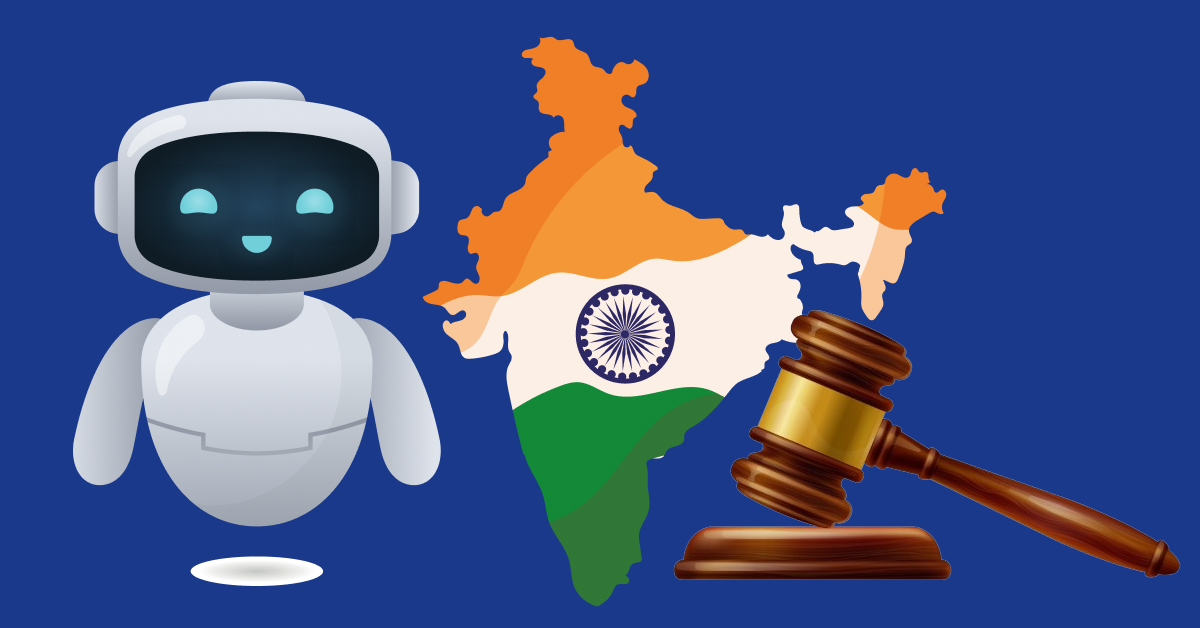Consider this: the World Bank's Doing Business Report (pre-2020) ranked India 163rd out of 190 countries for "Enforcing Contracts," primarily due to slow dispute resolution. Despite significant policy reforms, the burden remains high.
The shortage of judges—only 21.03 judges per million people—has pushed legal institutions toward alternative systems like ADR (Alternative Dispute Resolution) and legal technology. And AI is emerging as a powerful solution—not just for efficiency, but for reimagining how justice is delivered.
# The Underground Revolution: Where AI Has Already Stepped In
AI in law is not speculative anymore. It’s operational. In India, several courts and legal firms are experimenting with predictive analytics, natural language processing (NLP), and automated research tools.
Real-World Examples:
- The Supreme Court of India deployed an AI-driven SUPACE (Supreme Court Portal for Assistance in Court Efficiency) in 2021, which helps judges sift through large volumes of case law and facts.
- The Delhi High Court, in partnership with Tata Consultancy Services, has piloted AI for live court transcription and language translation, aiming to make proceedings multilingual.
- Leading law firms like Cyril Amarchand Mangaldas and Khaitan & Co. have begun using contract lifecycle management tools powered by AI to review, draft, and negotiate contracts in record time.
In the ADR landscape, PrivateCourt is at the forefront—leveraging AI-based document sorting, clause detection, and user behavior analytics to streamline dispute filing and settlement.
# The Crossroads: What AI Can and Can’t Do in Indian Law
What AI Excels At:
- Legal Research: Tools like CaseMine and Manupatra’s AI search engines help lawyers identify relevant case laws in seconds.
- Predictive Outcomes: U.S.-based LexisNexis and India’s PracticeLeague offer AI platforms that analyze past rulings to suggest probable outcomes.
- Contract Review: AI tools can detect inconsistencies, missing clauses, and risky terms in contracts up to 60% faster than human reviewers.
But AI Falls Short On:
- Legal Interpretation: AI still lacks the nuance to interpret abstract constitutional principles or moral dilemmas.
- Bias and Context: Trained on historical data, AI can unknowingly replicate systemic biases unless carefully audited.
- Empathy and Ethics: In cases involving family law, human rights, or conciliation, emotional intelligence and ethical judgment are non-negotiable.
“AI must be assistive, not authoritative, in matters of justice.” That’s the fine line India must walk.
# ADR and AI: A Silent Matchmaker
The ADR ecosystem—arbitration, mediation, and conciliation—is uniquely suited for AI augmentation because it values efficiency, confidentiality, and party autonomy.
Here’s how AI can make ADR processes smarter:
a. Dispute Categorization and Routing
PrivateCourt is developing tools that categorize disputes by industry, financial value, and legal complexity. This helps assign the right neutral and appropriate resolution track—e.g., fast-track arbitration for low-value claims or structured conciliation for emotionally charged matters.
b. AI-Powered Document Analysis
Using machine learning, PrivateCourt’s systems can scan arbitration agreements to:
- Identify jurisdictional errors
- Flag inconsistencies
- Predict procedural bottlenecks
c. Settlement Forecasting
By analyzing past case data, including settlement amounts, timelines, and party behavior, AI can suggest likely resolution windows and success probabilities—reducing negotiation fatigue.
d. Neutral Matching Algorithms
PrivateCourt is exploring AI-driven neutral selection—pairing arbitrators and conciliators with cases based on expertise, language, gender sensitivity, and even availability.
Globally, platforms like Modria (US) and Alibaba’s smart ODR system handle over 100 million disputes annually using AI triaging, without lawyers or courts. India, with its digital-savvy youth and over 850 million internet users, is primed for an AI-driven ADR boom.
# The Missing Framework: Where India Needs Guardrails
While AI’s rise in law is inevitable, regulation has not kept pace.
Challenges:
No AI Policy for the Judiciary: While the e-Courts project promotes digitization, it doesn’t regulate AI usage in judgments or evidence analysis.
Lack of Transparency: How do litigants know if an AI tool used in their case was biased, faulty, or opaque?
Data Protection: India’s Digital Personal Data Protection Act (DPDP), 2023 is a good start, but many legal tech platforms still process sensitive client data without clear compliance protocols.
Global Examples:
EU’s AI Act proposes legal boundaries for high-risk AI applications, including those in justice and policing.
The ABA (American Bar Association) has begun developing ethical standards for AI in legal practice.
India needs a Code of Conduct for AI in Law—especially in ADR, where private platforms like PrivateCourt must balance speed with fairness, innovation with privacy.
# The Verdict: Adapt or Be Left Behind
India’s legal sector stands at a defining threshold. The traditional model—paper-heavy, people-heavy, and painfully slow—is no longer sustainable in a hyper-connected, digital economy.
PrivateCourt’s leadership in tech-led ADR shows that the shift is not only possible but profitable. Integrating AI into every layer—from onboarding disputes to delivering awards—can reduce turnaround time by up to 65% and enhance client satisfaction across NBFCs, MSMEs, and fintechs.
But the journey must be ethical. AI should amplify human wisdom, not replace it. Judges, lawyers, arbitrators, and clients must collaborate to create a hybrid system where machines manage the routine, and humans uphold the soul of justice.
The future of Indian law won’t be written just in courtrooms. It will be coded in algorithms, debated in ADR platforms, and delivered on digital screens.
And in this future, PrivateCourt is not just adapting—it’s leading.
keywords: Artificial Intelligence in Indian law, AI and ADR in India, Future of Arbitration in India, Legal tech trends 2025, Online dispute resolution platform, PrivateCourt legal innovation, AI arbitration tools, Data-driven dispute resolution, Contract automation India, Ethical AI in Indian justice

